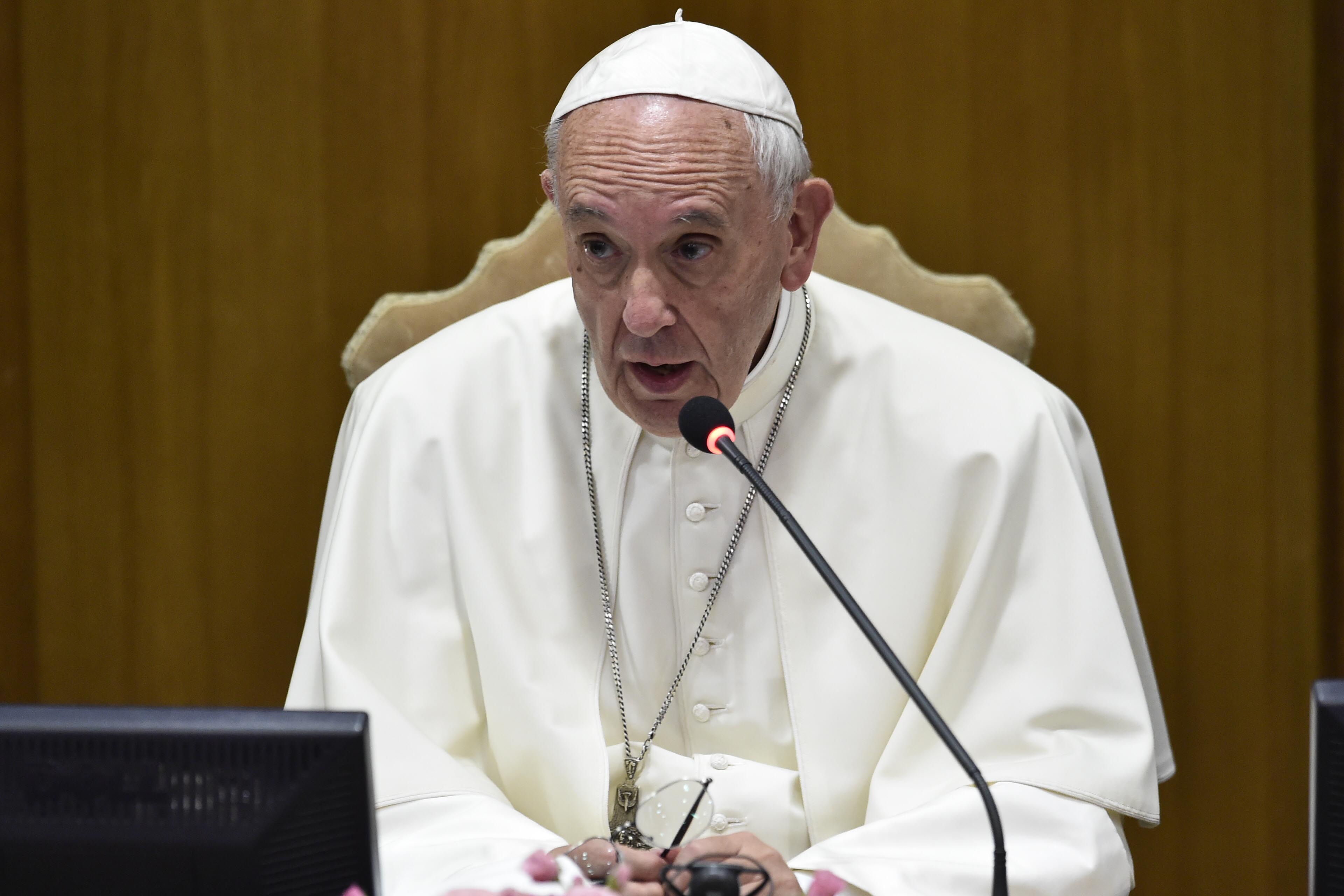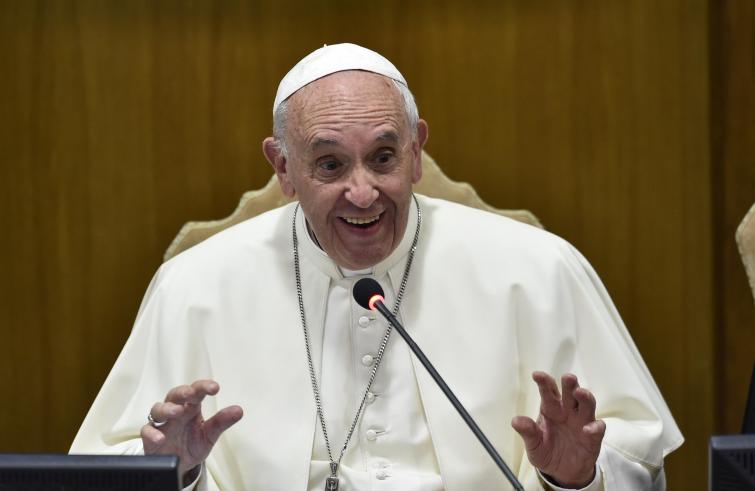Cei assembly
In his written remarks handed to Italian bishops at the end of a closed-door meeting, Pope Francis opened the 70th General Assembly of their Bishops’ Conference – during which they will elect three names to be submitted to the Holy Father for the appointment of the new President – calling for “Synodal breath” and “Christian difference.” Words of gratitude to Cardinal Bagnasco for his ten year of service

Ephesus, Smyrna, Pergamum, Thyatira, Sardis, Philadelphia, Laodicea. Seven Churches, recipients of an equal number of letters. Thus begins the Book of Revelation, that was conferred topical relevance by Pope Francis in his meeting with Italian bishops, taken as the emblem of the Church undergoing a permanent Reform, whereby the key works are parrhesia, dialogue, encounter, being close to the last and to the invisible ones, nobody excluded. In a word, it’s the “Christian difference.” “My idea is that of a sincere dialogue with you, where requests are made openly and without fears”, he said prior to the closed-door meeting with the bishops. During the Assembly, for the first time the bishops will proceed to elect with electronic vote the list of three candidates that will be given to the Pope who will select the successor of the outgoing president, Cardinal Angelo Bagnasco. “I assure the firm will of everyone present – the latter said greeting the Pope upon his entrance in the New Synod Hall – to support and sustain him in this service for the benefit of our Churches.”
“May these coming days be marked by open, humble, and sincere dialogue. Do not fear moments of open confrontation: entrust yourselves to the Holy Spirit that opens us up to diversity and reconciles what is different in fraternal charity.”
Thus begins the Pope’s speech, in which the Bishop of Rome calls on his Church to assume “Synodal breath and pace”, a key to Episcopal charity and to the relations with particular Churches. Indeed, Francis said, the path of the Church is also faced with closures and resistance.
“Our infidelities are a heavy burden resting on the credibility of our witness.”
Like the Church of Ephesus, “perhaps we too have relinquished love, freshness, enthusiasm to a bygone past”, is the first mea culpa. Like the Church of Smyrna, trying times give rise to tiredness, solitude, distress, delusion, and, at times, even to scandal. Like the Church of Pergamus we too
“seek to make the faith coexist with spiritual worldliness, the life of the Gospel with logics of power and success, forcibly presented as critical to the social image of the Church.”
It’s the attempt to serve two masters, useless ambition, self-obsession.

Like the Church of Thyatira, we are exposed to the temptation of reducing Christianity to a set of principles: thereby
“falling into a disincarnate form of spiritualism, which neglects reality and overlooks the tenderness of our brother’s flesh.”
Like the Church of Sardis, we risk being “seduced by the facade, by outward appearance and opportunism, conditioned by trends or by other people’s judgement”, Francis warned, evoking the
“Christian difference”, that “voices the welcoming spirit of the Gospel with works, with concrete obedience, with lived fidelity: resisting those who are aggressive, arrogant, oppressive: through followship with the small and acts of sharing with the needy. Let us allow ourselves to be questioned by charity, let us cherish the knowledge of the poor, let us favour their inclusion; and through mercy, we will partake in the book of life.”
Like the Church in Philadelphia we are called to perseverance, to boldly face reality, Francis said, calling upon the Italian Church to bravely cross every door the Lord reveals before us.
“Let us seize every occasion to become neighbours. Even the best leaven is inedible on its own, whereas in its humility it makes great quantity of flour ferment; let us be intermingled in the city of men, let us collaborate actively for the encounter with the different cultural riches, let us commit ourselves together for the common good of each and all. We will meet again as citizens of the New Jerusalem.”
Like the Church of Laodicea, we risk being subjected to the tepidity of compromise, to calculated indecision, to the snare of ambiguity. These are the attitudes that deserve the harshest condemnation, as we are reminded by a 20th century witness, Dietrich Bonhoeffer, who said that cheap grace is the mortal enemy of the Church.
“Let us let ourselves be shaken, purified and consoled. We are asked to be bold to avoid to avoid growing accustomed to deeply-rooted situations we perceive as normal or insurmountable”, Francis said. It’s the theme of the reform, which “does not entail tears but courageous choices, that lead us to be ‘disturbed’ by events and people, and immerse ourselves in human situations.”
“May no one be invisible or marginal in your eyes”, the Pope’s warning contained in last part of his speech. As Saint Therese of the Child Jesus wrote, “love alone makes the members of the Church act.”
Finally, the Pope thanked Cardinal Bagnasco for his ten-year service as President of the Italian Bishops’ Conference: “Thank you for your humble and shared service, not devoid of personal sacrifice, at a difficult time of transition of the Church and of the Country. May the election, and hence the appointment of your successor, be none other than a sign of love towards the Holy Mother Church, a love lived with spiritual and pastoral discernment, according to a synthesis that in itself is a gift of the Spirit.”